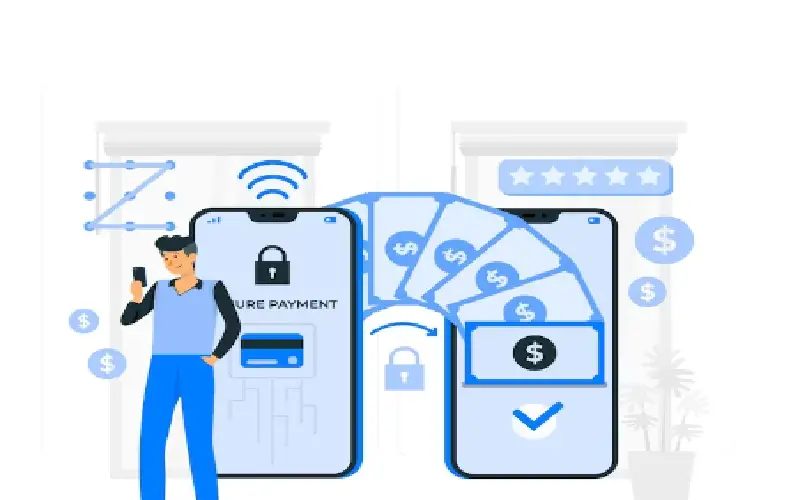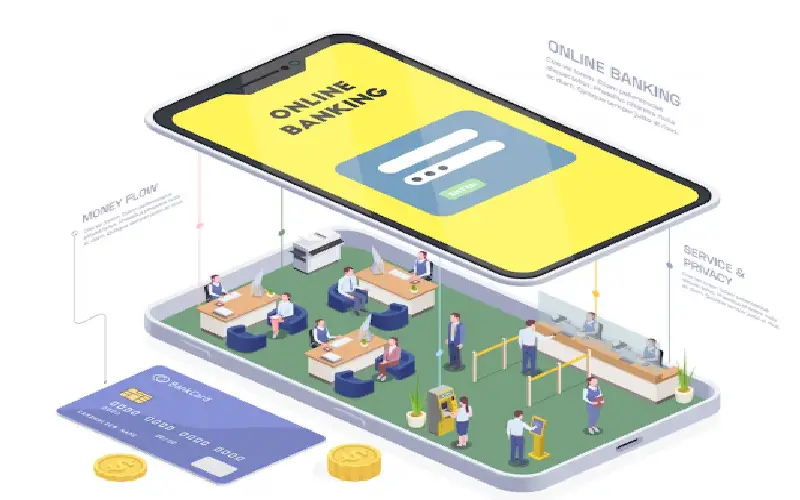Fintech is the amalgamation of finance and technology. The emergence of fintech in banks, financial institutions, and businesses is catering to a large number of clients. Fintech is used by businesses for peer-to-peer lending, trading, investing, and monitoring transactions. Fintech trading platforms use natural language processing (NLP), which helps companies to monitor and analyze their trading patterns. It helps to extract insights and interpret data efficiently and quickly.
1. Peer-to-peer Lending
It benefits both lenders and borrowers as it eliminates the need for a third – party. Moreover, there is a direct contact between the lenders and the borrowers. Lenders can gain better returns by registering themselves on this platform. Peer-to-peer Lending, helps in monitoring the monetary habit of borrowers by analyzing their credit scores and by providing reports to lenders. P2P lending connects the lender and borrower for transactions for which they charge a margin fee from both the parties.

2. Asset Management
The mergence of fintech in asset management helps investors to build portfolios of stocks and mutual funds. All transactions take place through direct contact between the buyer and seller. Further, analytics and reporting tools help in the collection of data and in providing valuable insights to clients. Recent trends in asset management technology like robotic process automation, AI, machine learning, and data analytics have altered the asset management process. It further helps to reduce operating costs and provide personalized management services to clients which helps in boosting the transparency of transactions by generating reports.

3. Digital Insurance
The insurance sector in fintech is called ‘Insurtech’. The process has a digital infrastructure that provides underwriting services at a cheaper rate to other companies. Moreover, algorithms make it easier to estimate insurance premiums and distribution benefits for customers. Fintech companies use AI for risk evaluation and analyze the risks involved in the process for both companies and customers. Further, the application of loans on mobile applications and websites have made loan and financing options accessible to everyone. Recent trends in the insurance sector include predictive analytics, which helps to analyze the risks, fraud detection, and market forecast. Further, the 24*7 availability of chatbots in insurance allows customers and businesses to solve their problems. Apart from this, telematics, an emerging trend in the insurance sector, is designed for people having car insurance. It includes risk monitoring devices installed on the car and detect the location, speed, risks, and accidents involved. It further helps in analyzing the insurance premium of the policy.

4. Payment Gateways
A payment gateway is often used by business owners to make and receive payments by linking their cards to a payment processor. The payment gateways are transaction services that help to process credit card transactions for e-commerce sales and for which it charges a margin fee. Further, it provides excellent data storage, reduces operating costs, and ensures timely payments. A payment gateway helps to protect consumers’ data from the business owner and the issuing bank by encrypting the data. Further, the payment card works on PCI DSS (Payment Card Industry Data Security Standards) compliance which is a set of International Security Guidelines implemented by card schemes. It helps to safeguard the credit and debit card transactions from security threats. Some other ways of securing a payment gateway include tokenization and 3D secure authentication.

5. Online Banking
Online Banking is beneficial for business owners to carry out transactions without bearing the physical pain of standing in long queues. With the emergence of fintech, e-commerce transactions take place with minimal cost. Moreover, the pandemic boosted the growth of online banking. Further, fintech has increased financial inclusion by expanding credit access through online banking.

6. Accounting For Businesses
With fintech, businesses can manage the accounting process. Fintech solutions provide various accounting packages which connects the accounting software with the bank’s software. They further offer insights by analyzing and interpreting the data. Fintech also provides accounting metrics that us AI for measuring transactions. Moreover, with fintech, accountants can carry out processing expenses through computer applications. An exciting trend is the AI bookkeeping automation, which makes the data entry tasks more manageable.

7. Global Currency Exchange
Fintech helps e-commerce suppliers to receive faster international money transfers and exchange of currency. An e-commerce seller has to cater to global demands which require converting cash into the desired exchange rate. Additionally, fintech helps in reducing exchange costs. The online currency conversion platforms enable users to convert currency with minimal charges and provide secure payments. Further, fintech offers live exchange rates, currency risk management, and free SWIFT payments.

8. Blockchain Solutions
Blockchain is an electronic ledger that helps to store transaction-related information into a single block. Often, it is called a public ledger. Blockchain technology is used by businesses for money transfers, financial contracts, or e-commerce shipments. Further, there is no third party involved in the transaction process as it enables direct contact between the sender and receiver. Besides, blockchain technology encrypts user data into the ledger, which is only accessible and known to the user. It further facilitates secure transactions.

9. Cybersecurity
Fintech provides cybersecurity solutions to businesses and helps in handling confidential information. Cybersecurity solutions provide security through biometrics, two-factor authentication, and multi-factor authentication. Further, it help to encrypt the data via login credentials. It offers AI-powered fraud detection algorithms that helps to detect fraud and risky transactions.

10. Customer Engagement Systems
Fintech helps companies in customer engagement systems. It analyzes consumers’ behavior and preferences and help in providing insights to businesses. These insights are used to boost the marketing strategies and help to gain more profit for companies. Further, the collection of data and data handling has become easier with the help of fintech. Moreover, AI-powered tools like AI chatbots and client servicing systems have provided 24*7 availability to customers, which solves their problems efficiently. Fintech solutions leverage businesses to fullfil the increasing needs of the industry and boost their growth. Further, financing, lending, trading, selling, and buying through fintech platforms have streamlined the business process.



















